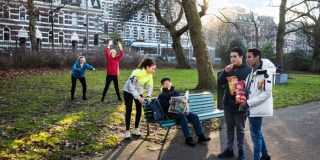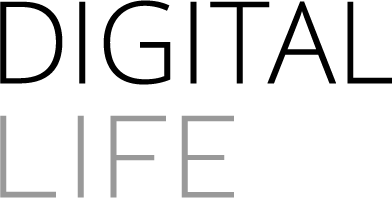Vitality: now and in the future more important than ever
16-06-2021

The kick-off of the Center of Expertise Urban Vitality (CoE Urban Vitality) of the Amsterdam University of Applied Sciences took place on June 15. 2021. This Center focuses on promoting the vitality of all citizens in the metropolitan environment, specifically Amsterdam and surroundings. Such as the frail elderly who live at home, overweight children or heart patients who have to rehabilitate. But also top athletes who want to know how they can train even better.
The CoE Urban Vitality is a partnership between educational institutions, organisations, companies, residents and the government and focuses on 5 themes:
- Healthy Aging
- Growing Up Healthy
- Intensive Complex Care
- People in Movement and Sports
- Performance and Management
Within the themes, demand-driven, interdisciplinary research is carried out in collaboration with the partners involved, and practice is reflected in education. Various Living Labs have been established in which residents, companies, governments, students and researchers tackle an issue together. Cross-thematic areas of expertise are also discussed, including artificial intelligence, entrepreneurship and higher education, research & innovation.
We also contributed to this kick-off from Digital Life. First, researcher Joey van der Bie was one of the speakers at workshop round 4. He is involved in both the SO-NUTS research and the Modular Online Platform:
People on the Move (MiB) – at a glance
Based on the presentation of five striking research projects and topics, MiB entered into a dialogue and discussion with researchers and project leaders. People in Movement works from synergy in the triangle of nutrition, movement and creative technology. Research is being conducted into how we can use technology to influence the diet and exercise behavior of vulnerable groups, aimed at sustainable health and vitality. A number of research projects and topics were discussed:
- SO NUTS – People often gain weight after retirement. SO-NUTS is investigating how sustainable behavioral change can be achieved with digital techniques (Peter Weijs, lecturer in Nutrition and Exercise, HvA).
- Modular Online Platform – For research applications, researchers find that developing an application costs a lot of time and money. A modular online platform can help researchers deploy an application more quickly (Joey van der Bie, Digital Life, HvA).
- iTLC – Lifestyle professionals find it difficult to use eHealth for consumers during their daily work. But eHealth can actually increase the quality of the treatments and help clients to improve their lifestyle and increase self-management (Daniel Bossen, researcher training Exercise Therapy, AUAS).
- RHYTHM – The most common heart valve disease in old age is aortic valve stenosis. Traditional treatment is open heart surgery. The RITME project maps out risk factors (such as low physical activity and poor nutritional status) and puts together an appropriate intervention (Dennis van Erck, Research PhD student, AMC).
- Open Science work package – From making a research protocol available through pre-registration to preparing methods, datasets and software for reuse. Together with researchers, MiB is making the transition to open science for practice-oriented research (Gerben ter Riet, clinical epidemiologist, AUAS).
As a second colleague from Digital Life, lecturer Somaya Ben Allouch spoke during workshop round 6:
Healthy Aging – Technological Innovation
In this workshop, illustrative projects of technological innovations related to Healthy Aging were highlighted and new possible initiatives were explored.
Healthy Aging, one of the core themes of the CoE Urban Vitality, is high on the wish list of a large majority of people in the Netherlands. Unfortunately, the fact that we get older does not automatically mean that the quality of life remains the same. What is needed to be able to stay in your own home or familiar environment for as long as possible? How do you stay surrounded and in touch with other people? What can you do to stay fit? But also: What does it take to recover in your own environment after hospitalization? How can modern technologies be used to support functional maintenance and self-reliance?
An example of this is social robotics in healthcare: how can you use robots for the various target groups in healthcare within the domain of health and well-being?
This kick-off afternoon was an informative start of the CoE Urban Vitality and we hope to hear about it more often!

